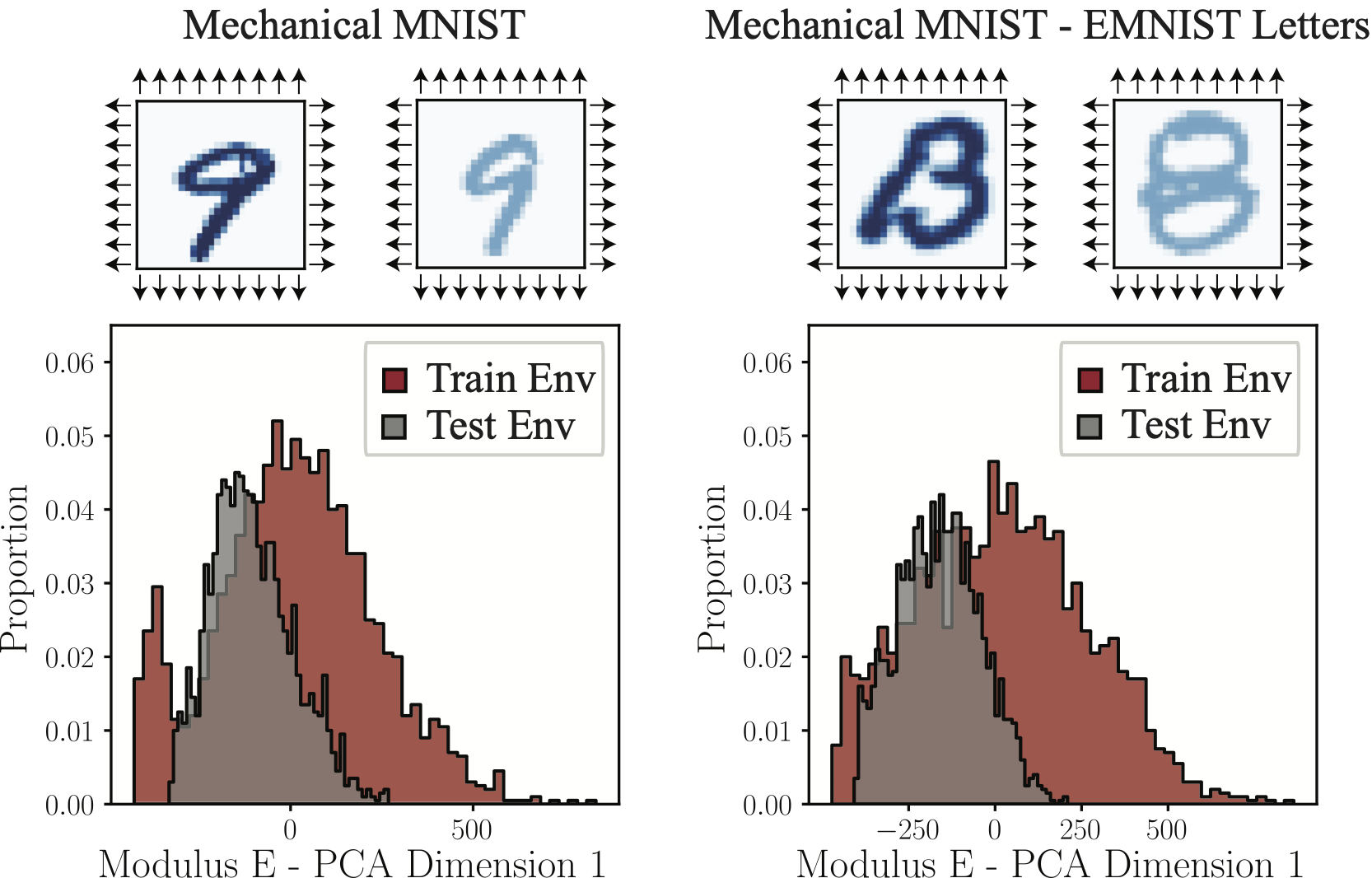Towards out of distribution generalization for problems in mechanics
There has been a massive increase in research interest towards applying data driven methods to problems in mechanics. While traditional machine learning (ML) methods have enabled many breakthroughs, they rely on the assumption that the training (observed) data and testing (unseen) data are independent and identically distributed (i.i.d). Thus, traditional ML approaches often break down when applied to real world mechanics problems with unknown test environments and data distribution shifts. In contrast, out-of-distribution (OOD) generalization assumes that the test data may shift (i.e., violate the i.i.d. assumption). To date, multiple methods have been proposed to improve the OOD generalization of ML methods. However, because of the lack of benchmark datasets for OOD regression problems, the efficiency of these OOD methods on regression problems, which dominate the mechanics field, remains unknown. To address this, we investigate the performance of OOD generalization methods for regression problems in mechanics. Specifically, we identify three OOD problems: covariate shift, mechanism shift, and sampling bias. For each problem, we create two benchmark examples that extend the Mechanical MNIST dataset collection, and we investigate the performance of popular OOD generalization methods on these mechanics-specific regression problems. Our numerical experiments show that in most cases, while the OOD generalization algorithms perform better compared to traditional ML methods on these OOD problems, there is a compelling need to develop more robust OOD generalization methods that are effective across multiple OOD scenarios. Overall, we expect that this study, as well as the associated open access benchmark datasets, will enable further development of OOD generalization methods for mechanics specific regression problems.
PDF Abstract


 Mechanical MNIST – Distribution Shift
Mechanical MNIST – Distribution Shift